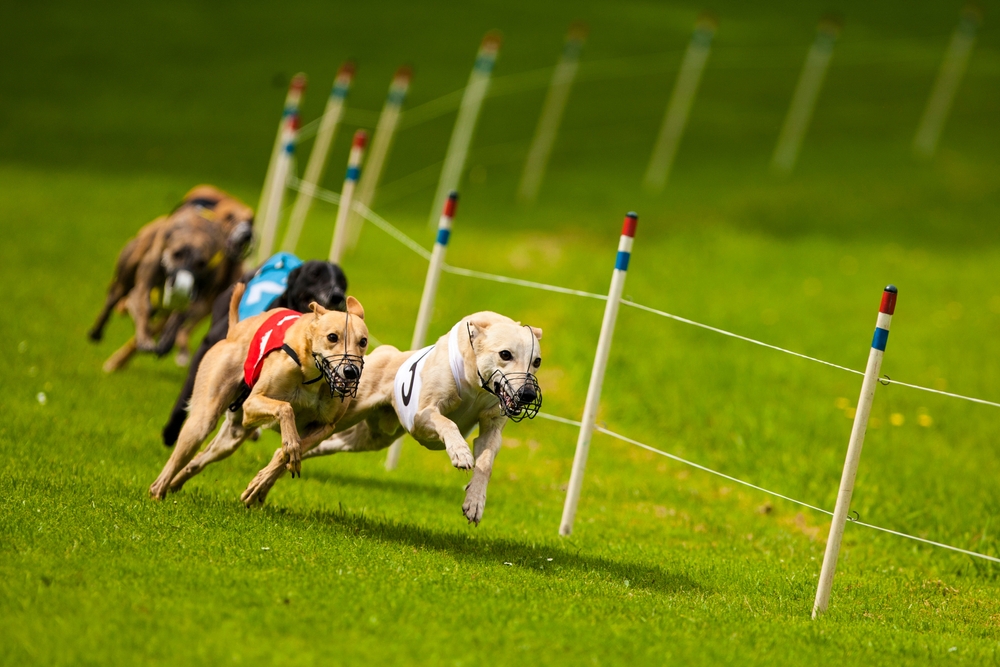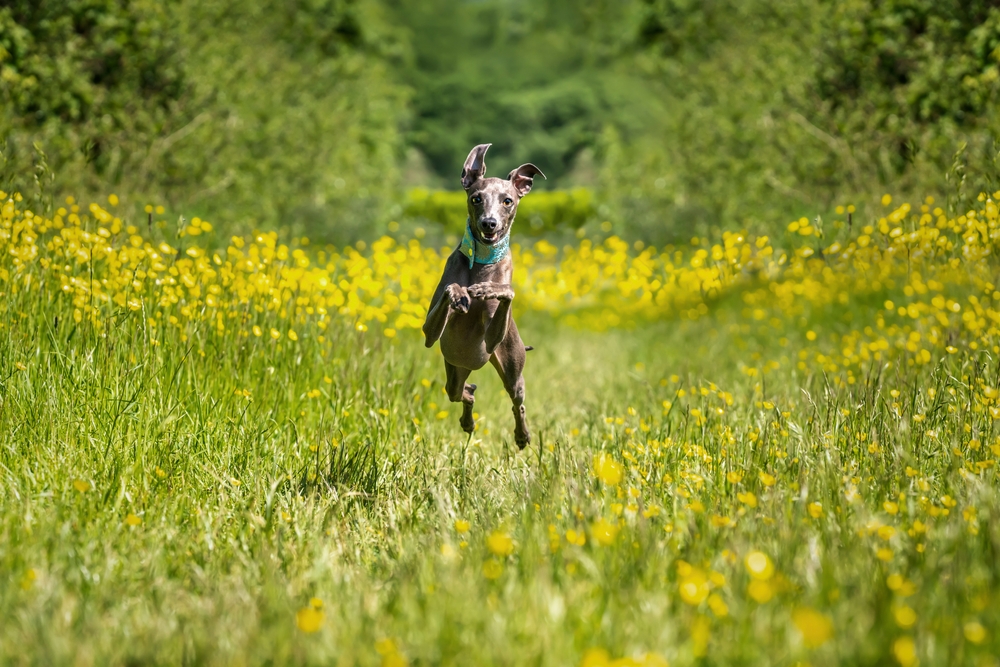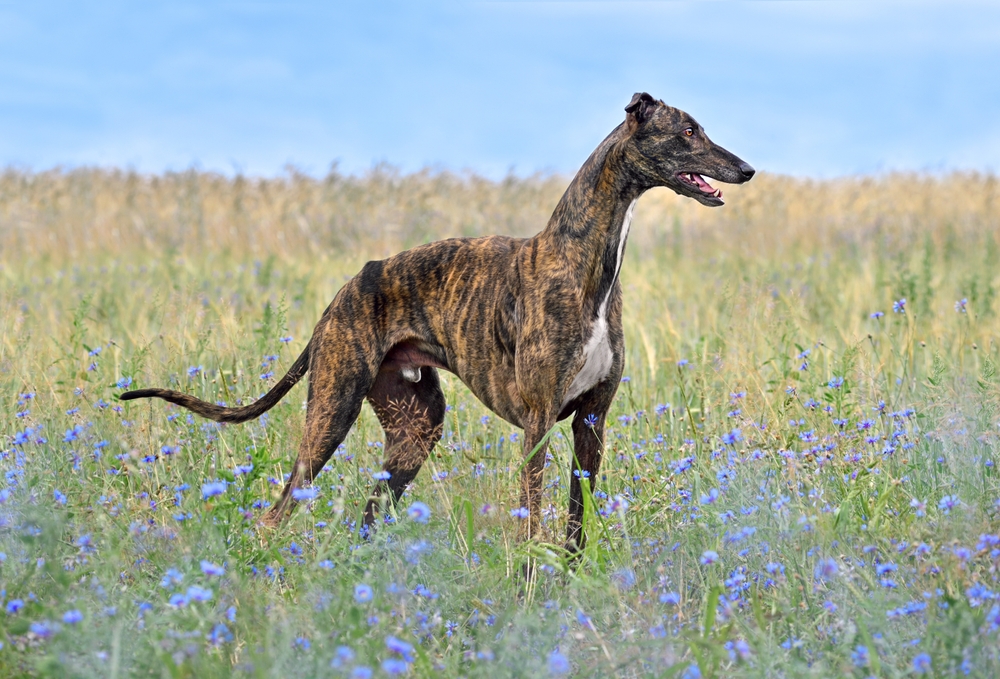Greyhound Racing Banned in New Zealand – A Win For Animal Welfare
The post Greyhound Racing Banned in New Zealand – A Win For Animal Welfare by Nicole Cosgrove appeared first on Dogster. Copying over entire articles infringes on copyright laws. You may not be aware of it, but all of these articles were assigned, contracted and paid for, so they aren’t considered public domain. However, we appreciate that you like the article and would love it if you continued sharing just the first paragraph of an article, then linking out to the rest of the piece on Dogster.com.
Click to Skip Ahead
Last week, New Zealand announced plans to ban greyhound racing, a move that has been described as both “monumental” and “devastating,” depending on whom you ask. If you ask us here at Dogster, the only thing devastating about it is the fact that it has taken so long to be banned in the first place. But this is a huge step in the right direction that will hopefully begin the snowball effect of global change in the sport. The decision, driven by persistent animal welfare concerns, marks the end of an era for the sport in the country.
Citing an “unacceptably high” rate of injuries, Racing Minister (and New Zealand’s Deputy Prime Minister) Winston Peters declared that the time had come to “make a call in the best interest of the animals.”1 Despite progress in recent years, including reductions in euthanasia and some injury rates, Peters stated that the improvements were insufficient to justify the continuation of greyhound racing.
The government has outlined a 20-month transition period to allow the industry to wind down. During this time, the priority will be the rehoming of the approximately 2,900 racing greyhounds currently in New Zealand. Peters assured the public that the dogs would not be sent overseas to race and introduced a bill to prevent the unnecessary killing of racing dogs, which “will be passed under urgency.” Animal welfare organizations such as SAFE and SPCA are poised to assist with the rehoming efforts, though logistical challenges remain, the government is dedicated to helping, with Peters describing greyhounds as “superbly good pets … and clean.”

The Dark Side of Greyhound Racing
The sport has long faced criticism in New Zealand for its treatment of greyhounds, with some breeders accused of mistreatment and doping. Reviews over the past decade have consistently called for significant changes, and in 2021, the government placed the industry “on notice” following reports of over 230 deaths and 900 injuries in a single year. Subsequent monitoring by animal rights groups like SAFE recorded more than 2,500 injuries and nearly 30 deaths in the two-and-a-half years that followed, despite the pressure from the calls for change in practice.
However, the announcement was met with strong opposition from Greyhound Racing New Zealand (GRNZ). The organization’s chairman, Sean Hannan, and chief executive, Edward Rennell, both expressed their disappointment. Hannan described the decision as “profoundly disappointing” and highlighted the potential cultural and economic void it would create. Greyhound racing contributes 8.5% of New Zealand’s NZ$1.3 billion racing industry and supports over 1,000 full-time jobs.
Despite these claims, the government’s decision was informed by a decade of reviews that consistently recommended stricter oversight or closure. Former racing ministers, including Grant Robertson and Kieran McAnulty, had previously signaled that the status quo was unsustainable. McAnulty, who served as racing minister until the last election in 2023, stated in May last year “We are faced with two options: continue under strict conditions or closure.” Peters’ announcement makes clear that closure was deemed the only viable path forward.
The decision has also drawn criticism from industry stakeholders for the lack of prior consultation. Rennell noted that GRNZ had been providing quarterly reports to the minister and had requested a meeting to discuss the future of the industry, but those overtures were ignored. “The greyhound racing community is left reeling from the announcement,” said Hannan, voicing concerns over the livelihoods of those involved in the sport.

Celebrating the Win For Greyhounds
Nevertheless, Peters emphasized that protecting animal welfare was the primary motivator behind the decision. “Stopping greyhound racing is the right thing to do,” he said, adding that the decision was not a reflection of personal feelings but a necessary step for the welfare of racing dogs.
Animal rights advocates celebrated Tuesday’s announcement, hailing it as a “monumental win for animal rights.” SAFE campaign manager Emma Brodie expressed relief, saying, “This marks an end of an era of exploitation and a monumental win for animal rights in Aotearoa.” Brodie added that the decision reflects a growing sentiment among New Zealanders who oppose cruelty disguised as entertainment.
New Zealand’s oldest animal welfare charity, SPCA, shared in the celebration, calling the decision “ecstatic” and urging other countries to follow suit. Currently, commercial greyhound racing is permitted in only a handful of countries, including Australia, Ireland, the UK, and the US.
The Animal Welfare Paradox
While the decision to ban greyhound racing has been widely celebrated, it also highlights a paradoxical animal welfare stance in New Zealand. Despite taking a strong stance on greyhound racing, the country still permits live export of livestock, a controversial practice that subjects animals to long, stressful journeys overseas. Animal rights groups have repeatedly condemned live export, describing it as cruel and inconsistent with New Zealand’s otherwise strong animal welfare image.
Furthermore, the country lacks comprehensive animal rights laws, with only limited protections for animals raised for food, farming, and entertainment (and not for pets). This inconsistency raises questions about the government’s broader commitment to animal welfare. One could argue that this step forward could be smoke and mirrors amongst their reversal of the live export ban from the previous government. Regardless, it’s a win for these dogs, but for many activists, while the greyhound racing ban is a step forward, it also serves as a reminder of the work that remains to be done.

Congratulations on This Step Forward
New Zealand’s decision to phase out greyhound racing is a bold and commendable step forward for animal welfare. The sport has operated under a cloud of controversy for decades, with numerous reports highlighting the exploitation and mistreatment of these dogs. The statistics alone are shocking: thousands of injuries and hundreds of deaths over just a few years. No entertainment or industry can justify such a toll.
This move signals a broader shift in societal values, where the welfare of animals is increasingly prioritized over outdated forms of entertainment. It also sets an example for other countries where greyhound racing remains legal, proving that progress is possible even in deeply entrenched industries. While it is true that the decision will impact the livelihoods of those involved in the sport, the government’s commitment to a managed transition period and rehoming efforts demonstrates a balanced approach to addressing these challenges.
New Zealand is finding its place as a global leader in animal rights, and this decision will undoubtedly inspire further action worldwide. For the greyhounds who have suffered in silence, this is not just a monumental win – it’s a long-overdue liberation.


What Are Your Thoughts?
We’d love to hear from you on this topic. Is this enough? Should more be done? Would you want to adopt a greyhound?
Get in touch in the comments below to let us know your thoughts.
The post Greyhound Racing Banned in New Zealand – A Win For Animal Welfare by Nicole Cosgrove appeared first on Dogster. Copying over entire articles infringes on copyright laws. You may not be aware of it, but all of these articles were assigned, contracted and paid for, so they aren’t considered public domain. However, we appreciate that you like the article and would love it if you continued sharing just the first paragraph of an article, then linking out to the rest of the piece on Dogster.com.
